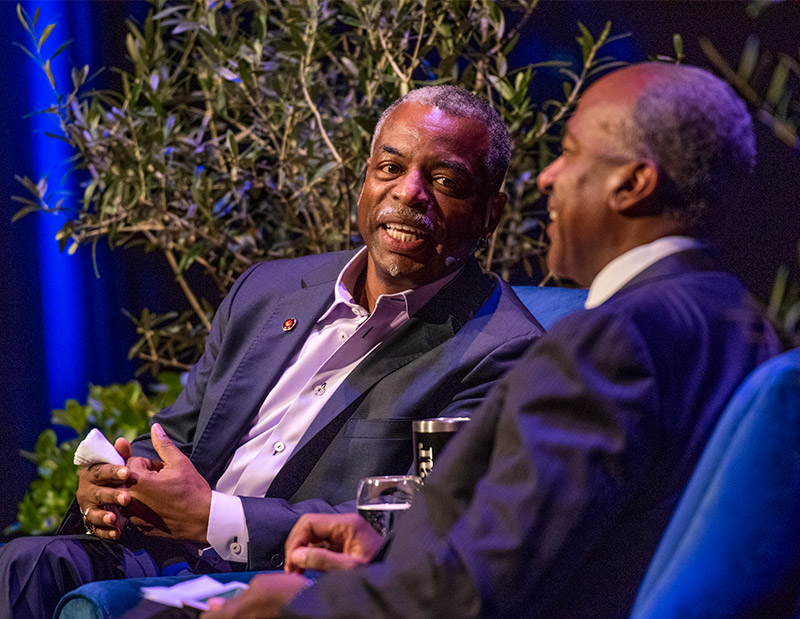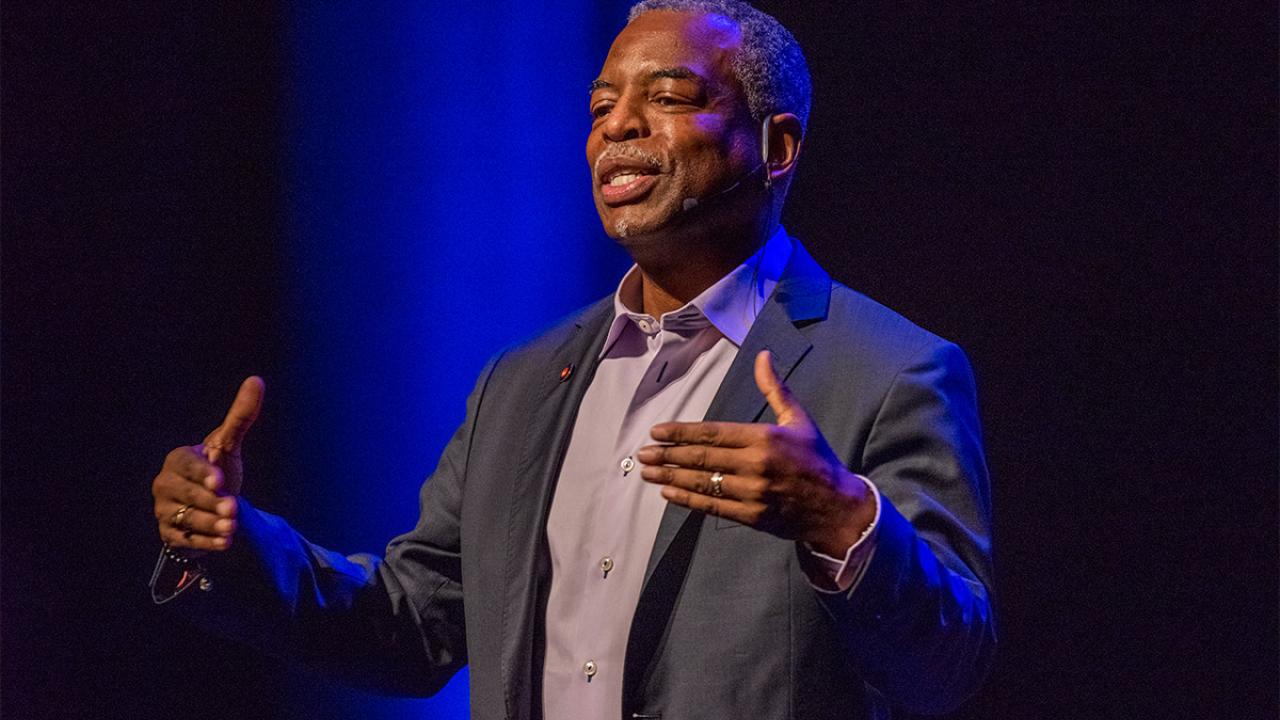If Earth ever makes it to the utopian, 24th-century future of Star Trek, LeVar Burton knows Black people will play an important role because of Lt. Uhura.
“Nichelle Nichols’ presence on the bridge of the starship Enterprise said to me that, ‘When the future comes, there will be a place for you,’” Burton told a crowd of about 600 people at the Mondavi Center for the Performing Arts last week. “That was so critically important to me.”

Burton, as the first guest in the 2019-20 Chancellor’s Colloquium series, discussed equality and representation in media, three of his storytelling mentors, and the impact stories can have.
“I'm an engineer, and the fact that a Black man was chief engineer on the Enterprise was powerful to me,” Chancellor Gary S. May told Burton during an on-stage question-and-answer session.
Burton emphasized the power of seeing someone in media with whom you can identify — especially for children.
“Absent positive examples of oneself in the popular culture, a dangerous message is sent to a child — a message that says, ‘You are not important, and you don't matter in this world,’” he said. “Representation is so important in the media that we consume.”
That impact is one of the lessons he learned from Alex Haley, writer of Roots, the book adaptation that starred Burton in a breakout role as the slave Kunta Kinte.
May said that series had a powerful impact on him when it aired in 1977 — especially a scene where Burton’s character had been captured after escaping, and is being whipped and asked to acknowledge his slave name.
NEXT CHANCELLOR’S COLLOQUIA
- Robert M. Franklin Jr., minister, James T. and Berta R. Laney Professor in Moral Leadership at Emory University’s Candler School of Theology, and a former president of Morehouse College. Thursday, Feb. 20.
- Christopher Markus and Stephen McFeely, who both earned master’s degrees in creative writing from UC Davis in 1996 and have written six installments in the Marvel Cinematic Universe including Avengers: Infinity War and Avengers: Endgame. Monday, May 18.
“For me that was a compelling, emotional scene,” May said. “Kunta kept saying, ‘My name is Kunta, my name is Kunta.’ Finally, he says, ‘My name is Toby,’ and I cried.”
Burton said the key lesson from that scene was another character’s reassurance that “there will always be another day.”
Burton discussed the arc of his career after Roots, joking about Star Trek’s costume choices (“There are no pockets in the future,” he said. “I know — I've been there.”) and relaying a lesson he learned from creator Gene Rodenberry that the people we treat as heroes are still human and susceptible to flaws.
The final storytelling mentor Burton mentioned was Fred Rogers, of Mr. Rogers’ Neighborhood, who imparted an insistence to connect with viewers through the camera that Burton took to his landmark series Reading Rainbow.
“Fred was an influence that really encouraged me to stretch toward the audience and invite them into an experience, authentically, as myself,” Burton said. “‘Talk to one child through the camera,’ was his advice.”
Katherine Stoddard, a business systems analyst with Information and Educational Technology who wore her own Star Trek costume to the colloquium, echoed the sentiment that if Burton reaches even one child, his efforts will have been worth it.
And the event did connect with at least one — 10-year-old Myla J. Ward.
“It was inspirational, it was funny, it was just awesome,” she said.
